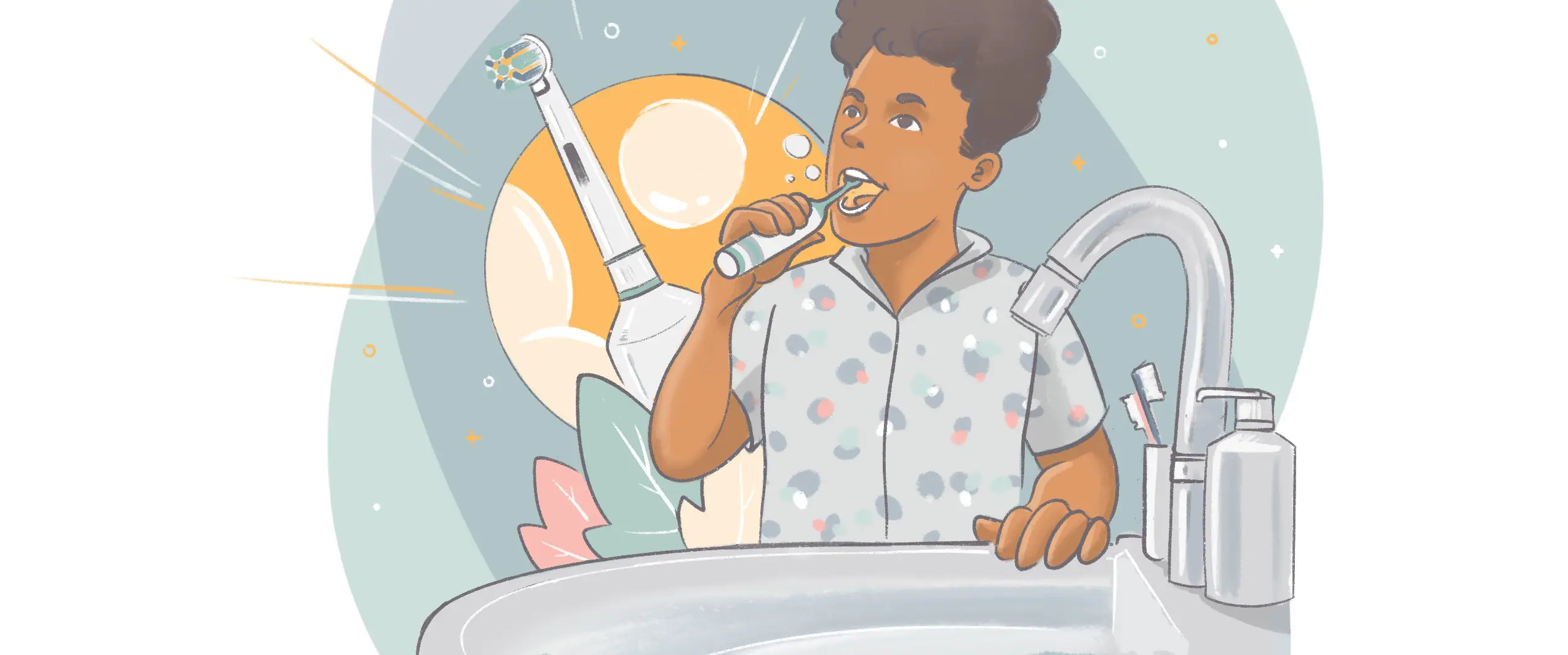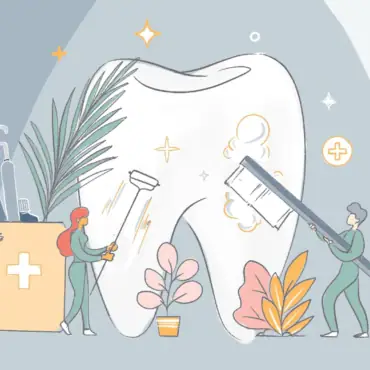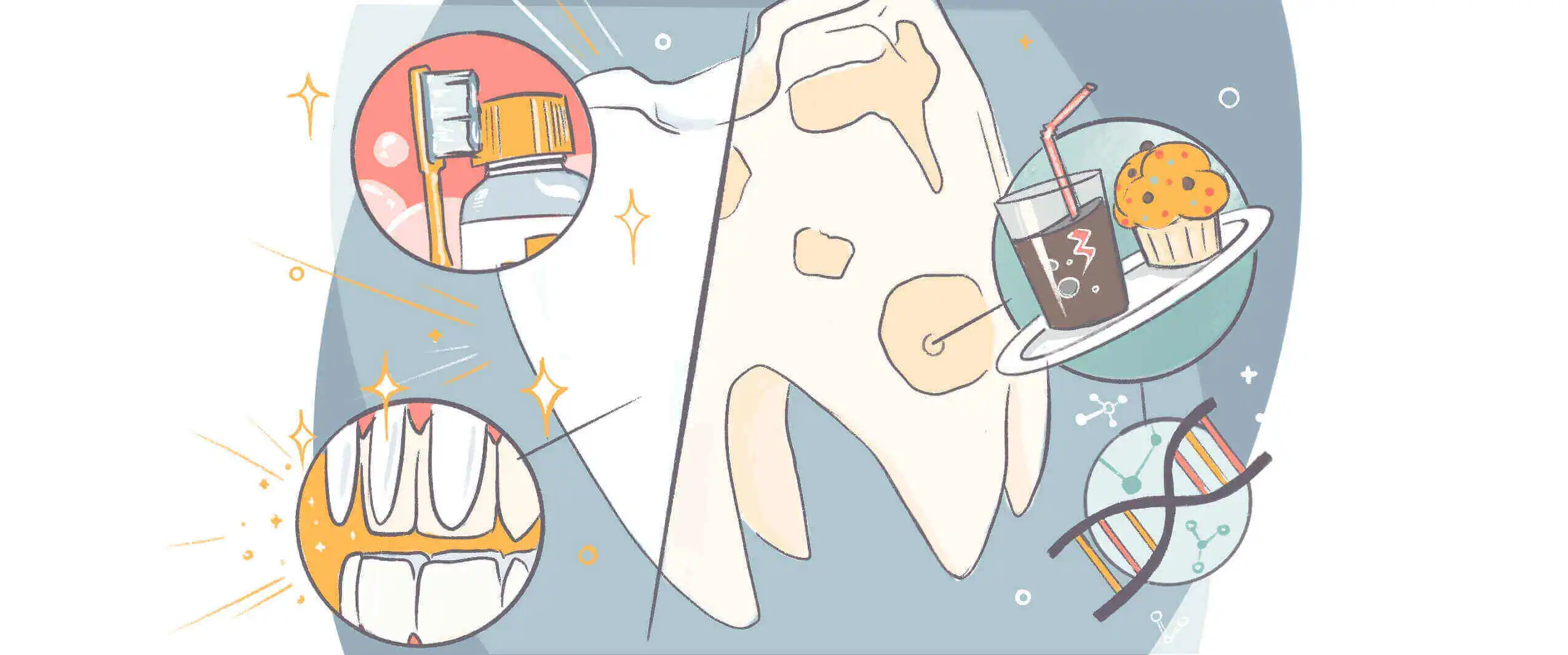How many people suffer complete tooth loss?
With more knowledge about dental hygiene and easier access to dental care, the rate of tooth loss is declining. However, 1 in 10 Americans aged 50-64 has lost all their teeth.
It can be frightening to think about total tooth loss and how that would affect your future in terms of eating and speaking. In addition, replacement teeth in the form of dentures is not a desirable solution for many patients.
Thankfully, dental advancements have provided edentulous patients (people with no teeth) with an excellent option for replacing their missing teeth — All-on-4 dental implants.
Don’t know what they are? Come along with us as we explore everything you need to know about all-on-4 dental implants.
What are all-on-4 dental implants?
Have you ever heard of a regular dental implant? For this procedure, a small hole is drilled into the jawbone to implant a titanium post. This post acts as a replacement for your natural tooth root.
After the post is implanted, you’ll be sent home to heal for a few months. Once the tissue is ready, the dentist adds an abutment to the post to which a custom-made crown can be attached.
It is the closest to a natural replacement tooth that you can get. Being fused to your jawbone, the implant is just as sturdy as a natural tooth and you don’t have to do anything special to take care of it: just brush and floss your teeth as normal.
All-on-4 implants are used when you are missing most or all of your teeth on either the top or bottom. An entire bridge is created to replace the missing teeth, but it is mounted on just four implants. This is far more cost-effective, less intense, and less painful than replacing each tooth individually.
Furthermore, while individual implants go straight down into your jawbone, the four implant points for all-on-4 implants are inserted at a 45-degree angle. This is important because it allows for shallower implants.
Give $50, get $50.
Refer someone to book a dentist with Opencare and you’ll both get $50.
This means the procedure requires less healthy bone in the jaw to attach the implant. Most people won’t require a bone graft to support the all-on-4 implant. Plus, instead of waiting months for the posts to heal and fuse with the jawbone, some people can get their new prosthetic teeth fitted in the same visit as the surgery. Others may have to wait a few months for healing, as it depends on the state of their mouth.
Who is eligible for all-on-4 dental implants?
Most anyone with missing teeth or whose teeth are damaged beyond repair is eligible for the procedure. Even those who have already experienced bone loss may be eligible. Bone loss happens naturally when there are no teeth to support the jawbone. Furthermore, wearing the implant will help prevent more bone loss from happening. This will help maintain a more youthful appearance and is better for your overall oral health.
Now that’s something to smile about!
Are all-on-4 dental implants removable?
Unlike partial or full dentures, all-on-4 implants are not removable.
As you heal after the procedure, the implants fuse to your jawbone, creating a permanent prosthesis that is basically the same as having natural teeth in your mouth.
What are the benefits of all-on-4 dental implants?
Just from what we’ve discussed so far, it isn’t hard to see the benefits of all-on-4 dental implants. However, let’s take a closer look at each one here.
Feel like natural teeth
Another big issue with dentures as a restorative measure for severe tooth loss is that they don’t feel natural. This can cause issues with speech and discomfort when wearing. Some people even experience psychological distress from having a foreign object in their mouth.
While all-on-4 dental implants do add a little bit of bulk that can feel odd at first, most people acclimate quickly. Once the bone heals and the initial adjustment period has passed, most people no longer notice the implant in their mouth.
By far, it is the dental prosthetic that feels most like natural teeth.
Look like natural teeth
Beyond feeling like natural teeth, all-on-4 implants also look like natural teeth. If you look closely enough at dentures, it can be noticeable that the teeth are false. Additionally, if dentures slip around or fall out while speaking or eating, it becomes obvious quite quickly that your teeth are fake.
Dental implants won’t ever slip or fall out. They are firmly in place, just like your natural teeth. They are carefully crafted to closely resemble the teeth they are replacing.
Single implants are usually colored to match the rest of your teeth. However, if you’re replacing all of them, you can have them made a few shades whiter.
Finally, that bright white smile you’ve always dreamed of is within your grasp!
Help prevent bone loss
Have you ever noticed how the jaw of an edentulous person seems to be receding? Their whole face seems to be falling, the skin starts sagging, all of which can create an appearance of aging.
Why does this happen?
The jawbone requires support to stay healthy and strong. With no teeth to support it, the bone begins to erode, creating that sunken face look.
Dentures aren’t always a good solution. While they can help sometimes, if the dentures are ill-fitting they can actually speed up bone loss.
An all-on-4 dental implant takes care of this problem for good. With the full arch in your mouth supporting your bone, you can retain your facial structure and enjoy a more youthful appearance.
Easy to care for
You’re already used to flossing and brushing your teeth twice a day, or at least you should be. That’s all you have to do with an all-on-4 dental implant.
There’s no messing around with popping your dentures out and letting them soak overnight or trying to stick them in with adhesives. Once the implant procedure is over and the bridge is mounted, you’re done!
Depending on what caused your edentulous state in the first place, you might need to step up your oral hygiene habits or visit the dentist more often. Find a dentist here if you don’t yet have one.
Give $50, get $50.
Refer someone to book a dentist with Opencare and you’ll both get $50.
Other than that, you can go on living life and stop worrying about your teeth.
Better oral health
In an effort to avoid dentures, some people may be resistant to removing problematic teeth. Unfortunately, in some cases, the teeth are beyond help. Leaving damaged teeth in your mouth typically only leads to more problems.
However, all-on-4 dental implants give people an option to remove their teeth and replace them with a more convenient alternative. Getting those rotten, infected, or otherwise unhealthy teeth out of the mouth is a far better option for overall oral health.
Enjoy the foods you love
With all-on-4 implants, you can continue to enjoy the foods you love.Of course, you’ll want to use caution. We don’t recommend consuming copious amounts of peanut brittle, popcorn, or chomping ice cubes. However, you can enjoy foods like apples, carrots, and other healthy foods that will support both your oral and overall health for a happier life.
Faster implant procedure
You may be used to the idea of dental implants requiring months to complete. After the initial surgery to implant the posts, you have to wait a few months for them to heal and fuse with the jawbone. While you may be given a temporary prosthetic to fill the space, you won’t get your final crown for months.
Dealing with a temporary placeholder can be annoying and the alternative is to have a hole in your smile for a few months.
Neither is ideal.
However, the all-on-4 implants are inserted at a 45-degree angle, offering enough support and structure without having to wait for the implants to heal. Some people can be fitted with their new teeth during the same office visit or within a few days.
What are the potential problems with all-on-4 dental implants?
Of course, no surgical procedure is without its risks. Here are the potential all-on-4 dental implants problems you may run into.
Risk of infection
If you use a reputable oral surgeon for the procedure, the risk of infection is very low. Some dentists may place you on an antibiotic after the procedure to help prevent infection, but it is not always necessary.
The main thing is to stay on top of your oral hygiene. Keeping your mouth clean by brushing your teeth and removing bacteria with mouthwash will minimize the risk of infection significantly.
Due for a checkup?
Find a top rated dentist near you that takes your insurance.
If signs of infection are present, notify your dentist immediately. Swift action can keep you from losing the implant altogether. How do you know if it is infected? Watch for pus, puffy gums, bleeding, or pain around the implant. The implant may become loose or wobbly. You may also develop a fever or notice a bad taste in your mouth.
Implant failure
Approximately 5% of patients will find that the implants don’t fuse to the bone. This is called implant failure and can happen to anyone. Often it is unclear why the implant failed in the first place.
The good news, however, is that most people can try again and experience a successful fusion the second time around.
You can lower the risk of failure by following your dentist’s post-surgery care instructions carefully. This includes eating soft foods, not smoking which is inherently bad for your teeth, and taking proper hygienic care of your teeth.
How much do all-on-4 dental implants cost?
When it comes to replacing all your teeth, all-on-4 dental implants cost less than doing multiple individual implants. The work is less intensive, requires fewer dentist appointments, and involves less downtime. All these factors contribute to it being a less expensive procedure overall.
However, that doesn’t mean that the procedure is cheap. All-on-4 dental implants cost between $15,000 and $28,000 dollars — averaging out to about $21,000. Keep in mind that additional costs such as extractions or the initial consultation are not included in this figure.
Don’t hesitate to shop around. Dentists in smaller towns may offer the same quality procedure at a lower cost. Try researching “all-on-4 dental implants cost near me” in Google in various towns to see what you find.
How long do all-on-4 dental implants last?
All-on-4 dental implants aren’t removable, but how long do they last? Are you going to be back in the dentist’s chair eventually having your implants yanked out and replaced?
In all likelihood, no.
All-on-4 dental implants are a relatively new procedure so it isn’t known 100% how long they can last. However, most dental professionals agree that it is reasonable to expect them to last 20-25 years. Many say they could potentially last for the patient’s lifetime, depending on the age of the patient.
The prosthesis that is mounted on the implants is not expected to last quite as long. With proper care, you can expect your prosthesis to last around 10-15 years. The good news is that a new prosthesis can be fashioned and mounted on your existing implants without having to do surgery again.
To help your implants and prosthesis last as long as possible, follow good oral hygiene rules. Brush and floss daily, visit the dentist for cleanings twice a year, limit eating hard or sticky candy and food, wear a mouthguard when playing contact sports, and don’t use your teeth as a tool.
Looking for a dentist?
Are you searching for a dentist near you? We’re happy to help! Our whole goal is to help you level up your oral wellness. Get started today because the smile you’re longing for is waiting for you!
Due for a checkup?
Find a top rated dentist near you that takes your insurance.








